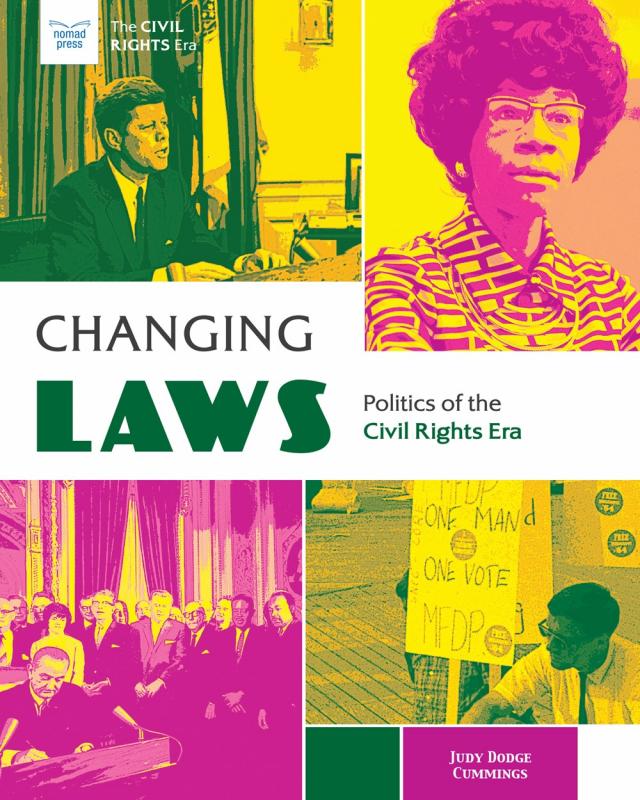
Changing Laws: Politics of the Civil Rights Era
by Judy Dodge Cummings Author
Changing Laws: Politics of the Civil Rights Era invites middle graders to explore the key legislative and judicial victories of the Civil Rights era, including Brown v. the Board of Education, the Civil Rights Act of 1964, the Voting Rights Act of 1965, and the Fair Housing Act of 1968. Plus, as racial tensions ripped the country apart, presidents from Eisenhower through Nixon worked to uphold the U.S. Constitution, sometimes willingly and sometimes reluctantly. Hands-on projects and research activities alongside essential questions, links to online resources, and text-to-world connections promote a profound understanding of history and offer opportunities for social-emotional learning. "We shall overcome" was the refrain of the Civil Rights Movement, but overcoming centuries of discrimination was not easy. When the activism of civil rights protestors exposed the rampant racism embedded in America’s politics for the world to see, political leaders in the federal government were forced to act. In Changing Laws: Politics of the Civil Rights Era, students ages 12 to 15 explore the key legislative and judicial victories of the era that spanned from 1954 to the early 1970s. The successes of Brown v. the Board of Education, the Civil Rights Act of 1964, the Voting Rights Act of 1965, and the Fair Housing Act of 1968 were the results of African American activism and a growing awareness of social justice and injustice. Marches, demonstrations, boycotts, and lawsuits prodded local and state governments to reveal the bigotry of their laws and the brutality of their oppression of black citizens. As racial tensions ripped the country apart, presidents from Eisenhower through Nixon worked to uphold the U.S. Constitution, sometimes willingly and sometimes reluctantly. As members of Congress debated and negotiated, change came slowly. Schools, restaurants, and polling stations all opened their doors to African Americans. But victory was incomplete and came at a price. And today, we’re seeing that the job is still unfinished, as protestors take to the streets and make their voices heard in a call for anti-racism at all levels of society.
You must log in to comment.
